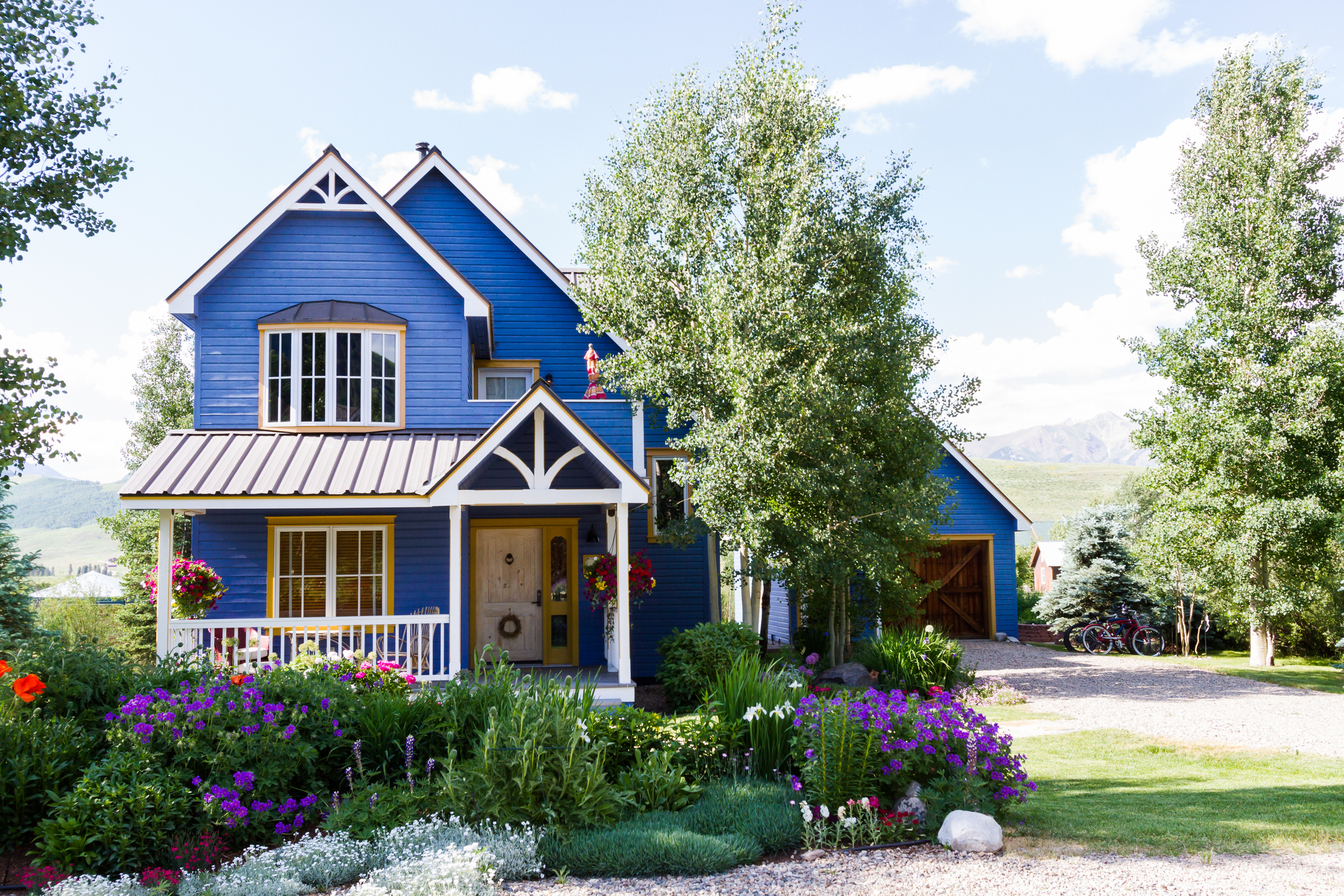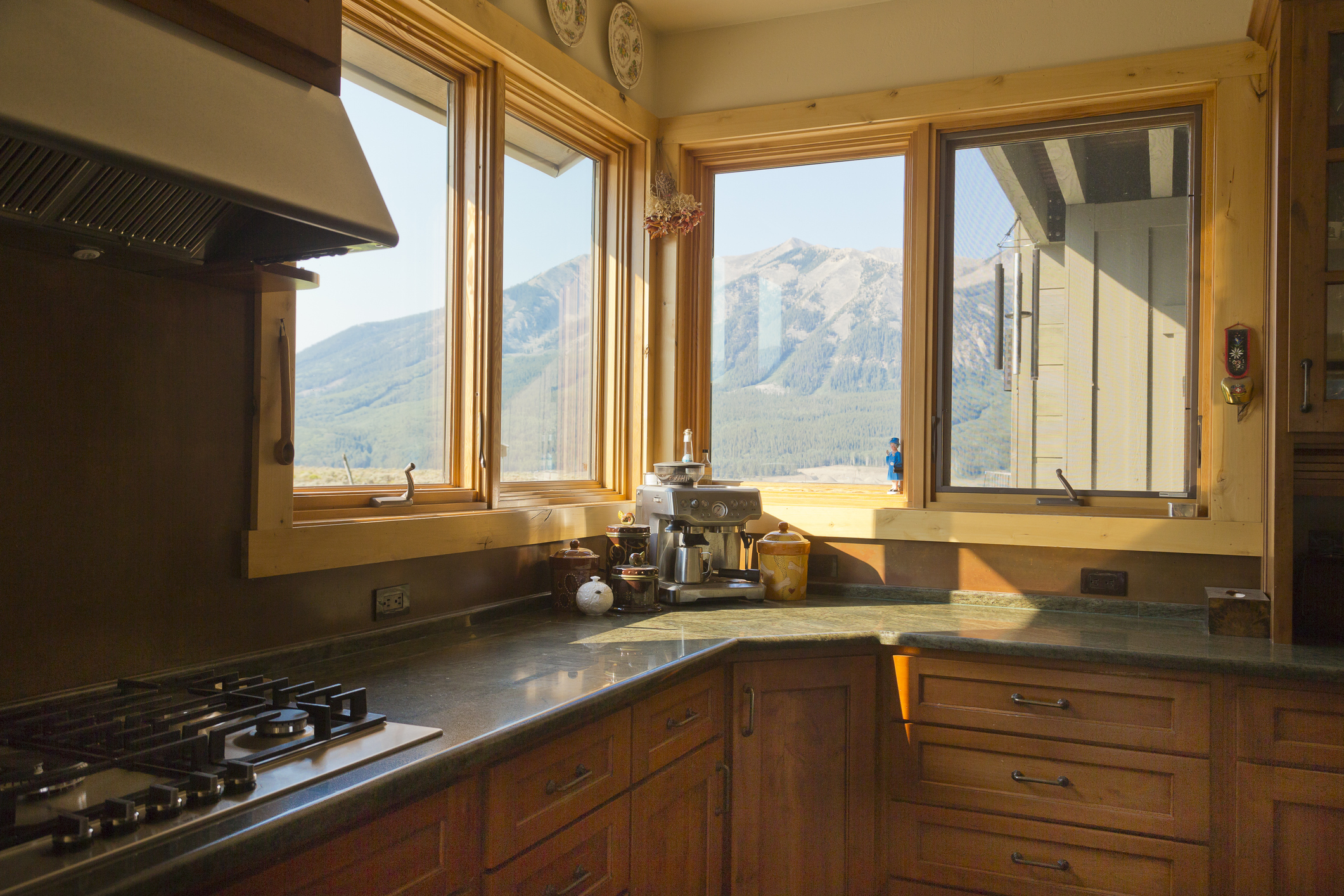Upsizing in Retirement: Why You Should (and Shouldn't) Do It
Upsizing, or buying a bigger home, can make your retirement feel more luxurious. There's room for grandkids and projects, but run the numbers carefully.


Profit and prosper with the best of Kiplinger's advice on investing, taxes, retirement, personal finance and much more. Delivered daily. Enter your email in the box and click Sign Me Up.
You are now subscribed
Your newsletter sign-up was successful
Want to add more newsletters?
It’s long been common for retirees to downsize their homes as their careers wind down and their children grow up and move out. While AARP reports that a growing number of Americans are opting to age in place, downsizing can offer benefits, such as reducing the cost of a larger home and eliminating much of the work.
But you may be fantasizing about upsizing your home in retirement. It’s less conventional, but that isn’t necessarily a reason not to do it, provided you’ve thought things through.
The upside of upsizing
Upsizing might read like a foolish move at a time in life when people are advised to try cutting costs. But upsizing could offer you a world of benefits during retirement.
From just $107.88 $24.99 for Kiplinger Personal Finance
Become a smarter, better informed investor. Subscribe from just $107.88 $24.99, plus get up to 4 Special Issues

Sign up for Kiplinger’s Free Newsletters
Profit and prosper with the best of expert advice on investing, taxes, retirement, personal finance and more - straight to your e-mail.
Profit and prosper with the best of expert advice - straight to your e-mail.
For one thing, it may be that you spent most of your life in a smaller, less expensive home for the express purpose of being able to fund your retirement nest egg and meet your remaining savings goals. But if you've achieved those goals, and you're finally in a place where you can afford a larger home, why not let yourself enjoy one?
Retirement is a period of life when you're likely to spend more time at home, not less, given that you aren't working. It makes sense to want a home that gives you room to spread out, enjoy your hobbies, and perhaps have some space from your spouse or partner when you're both home a lot.
You may also have opted for a smaller home during your working years because your career kept you busy, and you wanted to minimize maintenance. In retirement, you may be eager to stay busy and have more time to maintain a larger home.
Upsizing might also be necessary if you want to retire closer to family. If you have lived in a city your entire career for job access, you might finally have the opportunity to live near family if they are in a more rural area.
And if not, a larger home could be more conducive to extended family visits than your current home — something you might crave in retirement. A 2025 Transamerica survey found that pre-retirees' top dreams include spending more time with family and friends. A larger home could make it possible to host guests under your roof.
It's also worth noting that while upsizing a home often means taking on more work, it doesn't always translate into higher costs. If you’re moving from a city to a suburb or rural area, your mortgage and property taxes could shrink, even if your maintenance costs and utility bills rise.
Additionally, you may find that a larger home is better able to accommodate you as you age than a smaller one. If you end up needing a walker, wider doorways could help you get around. If you have more space to move around, you’re less likely to injure yourself banging into corners.
Melissa Cohn, Regional Vice President of William Raveis Mortgage, says, "As we get older, many people have health issues that make it difficult to live in your own home. If you have room for a live-in caretaker or aide, that may allow you to stay in your home longer."
Finally, upsizing could be a strategy you integrate into your estate plan. Passing on a larger home to your loved ones is something that may bring you, and them, a lot of joy.

The downside of upsizing
The obvious drawback of upsizing in retirement is the risk of taking on more expenses. But there's also the work and stress of owning a larger home to consider.
In the absence of a job, you may have more time to deal with upkeep. But whether that's work you'll enjoy is another story.
You may also find that as you age, your ability to tackle home maintenance starts to wane. At that point, each minor repair that crops up could become a major point of stress, especially if you're outsourcing help every time.
You may also find that upsizing puts you in a less social environment. If you're moving from an apartment where you're used to chatting with neighbors to a rural area where homes are spread out, you might struggle with loneliness.
As it is, retirees are prone to loneliness because they're not going to work every day and are not interacting with others. You don't necessarily want to pile on by isolating yourself physically.
Run the numbers
If living in a larger home is something you’ve always wanted to do, and you’re confident you can afford to upsize in retirement, then there’s no reason not to do so. Avoiding upsizing simply because most of your friends may be inclined to do the opposite isn't a good enough reason. But make sure to account for all your costs before moving forward with plans to purchase a larger home. These include:
- Your mortgage, if applicable
- Property taxes
- Homeowners insurance
- HOA fees, if they apply where you’re moving
- Utilities
- Maintenance
- Furniture, which you may need to fill a larger home
Ultimately, if the numbers add up, there’s no reason to deny yourself the joy of what could be a more comfortable home.
"Downsizing is often framed as the most responsible move in retirement. But upsizing can be equally strategic when it's intentional and affordable," insists Julian B. Morris, founder and principal at Concierge Wealth Management.
Read More
- The Cheapest Places to Retire in the US
- I Want to Buy a Vacation Home. I'm 65 and Have $3 Million Saved. Am I Crazy?
- You May Not Want to Downsize in Retirement: Here's Why
- My Great Retirement Dream: Sell My House, Downsize, Live off the Proceeds and Dabble in Stocks. Can I Do It?
- Should You Rent in Retirement?
Profit and prosper with the best of Kiplinger's advice on investing, taxes, retirement, personal finance and much more. Delivered daily. Enter your email in the box and click Sign Me Up.

Maurie Backman is a freelance contributor to Kiplinger. She has over a decade of experience writing about financial topics, including retirement, investing, Social Security, and real estate. She has written for USA Today, U.S. News & World Report, and Bankrate. She studied creative writing and finance at Binghamton University and merged the two disciplines to help empower consumers to make smart financial planning decisions.
-
 4 High-End Experiences Worth the Splurge After 50
4 High-End Experiences Worth the Splurge After 50These curated date ideas provide the perfect backdrop for couples ready to enjoy the very best that the world has to offer.
-
 Health Care Stocks Have Sagged. Can You Bet on a Recovery?
Health Care Stocks Have Sagged. Can You Bet on a Recovery?The flagging health care sector has perked up a bit lately. Is it time to invest?
-
 Costco's Auto Program: Can Membership Pricing Really Save You Money on a Car?
Costco's Auto Program: Can Membership Pricing Really Save You Money on a Car?Costco's Auto Program can simplify the car-buying process with prearranged pricing and member perks. Here's what to know before you use it.
-
 4 High-End Experiences Worth the Splurge After 50
4 High-End Experiences Worth the Splurge After 50These curated date ideas provide the perfect backdrop for couples ready to enjoy the very best that the world has to offer.
-
 What Is an Assumable Mortgage and Could It Save You Thousands?
What Is an Assumable Mortgage and Could It Save You Thousands?With mortgage rates still elevated, taking over a seller’s existing home loan could lower monthly payments — if the numbers work.
-
 My Grandkids Want Me to Donate to Their Teams and School Fundraisers. I Adore Them, but I'm on a Budget.
My Grandkids Want Me to Donate to Their Teams and School Fundraisers. I Adore Them, but I'm on a Budget.When your heart says "yes" but your wallet says "no," there is still a way forward. Here's what financial pros say.
-
 Your Retirement Age Is Just a Number: Today's Retirement Goal Is 'Work Optional'
Your Retirement Age Is Just a Number: Today's Retirement Goal Is 'Work Optional'Becoming "work optional" is about control — of your time, your choices and your future. This seven-step guide from a financial planner can help you get there.
-
 Quiz: Do You Know How to Maximize Your Social Security Check?
Quiz: Do You Know How to Maximize Your Social Security Check?Quiz Test your knowledge of Social Security delayed retirement credits with our quick quiz.
-
 Private Capital Wants In on Your Retirement Account
Private Capital Wants In on Your Retirement AccountDoes offering private capital in 401(k)s represent an exciting new investment opportunity for "the little guy," or an opaque and expensive Wall Street product?
-
 It's Time to Bust These 3 Long-Term Care Myths (and Face Some Uncomfortable Truths)
It's Time to Bust These 3 Long-Term Care Myths (and Face Some Uncomfortable Truths)None of us wants to think we'll need long-term care when we get older, but the odds are roughly even that we will. Which is all the more reason to understand the realities of LTC and how to pay for it.
-
 Fix Your Mix: How to Derisk Your Portfolio Before Retirement
Fix Your Mix: How to Derisk Your Portfolio Before RetirementIn the run-up to retirement, your asset allocation needs to match your risk tolerance without eliminating potential for growth. Here's how to find the right mix.